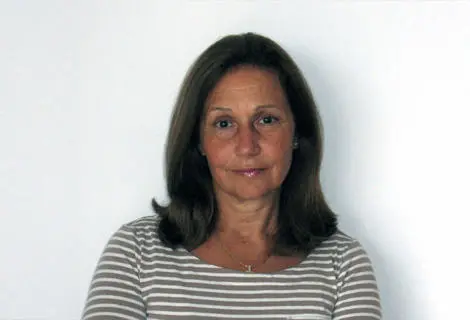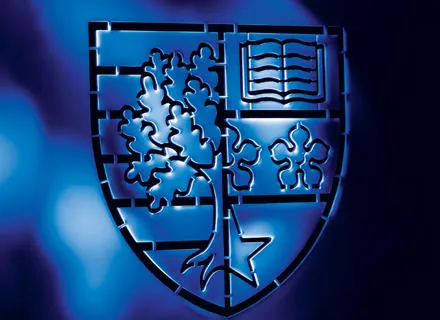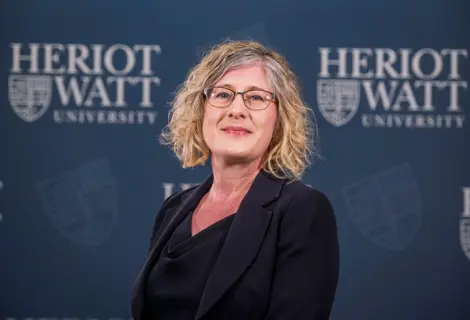Key information
Our MSc Interpreting and Translating programme at Heriot-Watt University is a twin-focus degree which will prepare you for a career as a professional translator and interpreter in one or two of the following with English – Spanish, German, Chinese or French.
- Level
- Postgraduate Taught
- Delivery type
- Full Time, Part Time
- Degree qualification
- MSc
- Mode of delivery
- On-Campus
- Duration
- 1 year
- Location
- Edinburgh
- Start date
- September
This joint master’s programme has been designed to meet the needs of the international interpreting and translation industries. You’ll master the skills and techniques of translating and interpreting to a professional standard and will develop the ideal balance of theoretical knowledge and practical skills.
You’ll learn relevant transferable communication skills, including the skills of summarising, abstracting, note-taking for interpreting purposes and public speaking. You’ll be able to communicate effectively and efficiently with other professionals in the field, including colleagues and clients. You’ll master IT skills that are relevant to the work of a professional interpreter and will be able to use specialised databases.
Each course will equip you with highly employable expertise and skills in interpretation and translation. You’ll have the opportunity to choose one optional course – including international politics and organisations, intercultural communication in the workplace, translation technologies and subtitling. This will allow you to customise your learning and develop specific interpreting and translating interests. Your interpretation and translation dissertation will allow you to engage in an independent in-depth critical examination of a particular topic that falls within the scope of Translation and Interpreting Studies, which is of interest to you.
You’ll benefit from the industry relevance of the programme, which will set you up for life after graduation. Upon completion, you’ll be equipped with the transferable skills and qualities necessary to become a professional interpreter and translator in a variety of professional contexts. Beyond the subject-specific knowledge and skills, you’ll also be given the opportunity to learn and practice transferrable skills such as presentation, communication and ICT skills.
Academic Excellence Scholarship
To recognise the academic excellence of our applicants, Heriot-Watt is offering a scholarship in the form of a £2,000 tuition fee reduction to the student/s deemed to have met the highest academic criteria in their application for MSc Interpreting and Translating.
Learn moreYour student experience
You will be taught by a team of highly qualified researchers, educators and practising professionals who bring knowledge, expertise and guidance to the classroom.
This blend of academic and professional expertise helps our programme maintain its position at the forefront of industry practice and ensures that you will gain practical insights into the careers of successful interpreters and translators on an almost daily basis.
Go Global
There are currently no Go Global opportunities for this particular programme. However, other Go Global opportunities may be available. Please contact studywithus@hw.ac.uk for more information.
Course content
September Intake - Edinburgh
Year 1
Mandatory September
- Skills for Interpreting
- Translation and Interpreting Studies
- Translation Practice I
Optional September
- International Politics and Organisations
- Intercultural Communication in the Workplace
- Translation Technologies
Mandatory January
- Conference Interpreting
- Translation Practice II
- Research Methods
Mandatory May
- MSc Dissertation
Optional January
- Introduction to the Translation and Interpreting Professions
- Subtitling
- Global Englishes and the International Workplace
Disclaimer
The courses mentioned above may change between now and the time that you study. For more information, please view our Terms and Conditions.
Programme Video
Languages at Heriot-Watt
Fees and funding
| Status | Full Time | Part Time |
|---|---|---|
| UK | £10,864 | £5,432 |
| International | £21,872 | £10,936 |
- Status: Your residency status is usually defined as the country where you have been ordinarily resident for the three years before the start of your course.
- International: 'International' includes applicants from European Union countries who do not hold Pre-Settled or Settled status in UK. (This does not include students from the Republic of Ireland - see above).
Scholarships and bursaries
Postgraduate scholarships and bursaries
We aim to encourage well-qualified, ambitious students to study with us and we offer a wide variety of scholarships and bursaries to achieve this. Over £6 million worth of opportunities are available in fee and stipend scholarships, and more than 400 students benefit from this support.
Entry requirements
We have standard entry requirements for all of our courses that you will have to meet.
Year 1
Strand A (one language)
Our minimum entry requirements satisfy both:
- Native / near-native command of English plus native / near-native command of Chinese, French, German, or Spanish.
- An honours degree at 2:2 or non-UK equivalent in a relevant subject that demonstrates clear languages proficiency, preferably in the chosen study language. We can also consider other language experience such as translating or work experience with other languages.
Strand B (two languages)
Our minimum entry requirements satisfy both:
- Native / near-native command of English plus an excellent command of two from French, German, Spanish or Chinese.
- An honours degree at 2:2 or non-UK equivalent in a relevant subject that demonstrates clear languages proficiency, preferably in the chosen study languages. We can also consider other language experience such as translating or work experience with other languages.
Entrance tests
Suitable applicants will be invited for interview and to undertake a short test.
We welcome applications from international students and accept qualifications from around the world. Please refer to the entry requirements for your country for more details.
English language requirements
If your first language is not English, we'll need to see evidence of your English language ability.
The minimum English language requirement for entry to this programme is IELTS 7.0 (or equivalent) with no score lower than 6.5.
If you do not have IELTS 7.0, we offer a range of English language courses to help you meet the English language requirement for this programme prior to commencing your studies.
Please see our detailed English language requirements.
Why Heriot-Watt
We're the top university in Scotland for graduate outcomes which means that more of our graduates are employed or in postgraduate education than any other institution in the country and we ranked 5th in the UK.
We're also rated number one in the UK for CEO or MD roles, meaning more of our graduates go on to become CEOs or MDs than any other university in the whole of the UK. On top of that, we have beautiful campuses, across the globe, so you'll get a truly international education. Our Edinburgh Campus is home to Oriam, Scotland's National Sports Performance Centre combined with plenty of wellbeing resources, prioritising fitness and mental health for all students. Our Global Research Institutes look at solving real world issues such as climate change and saving our oceans as well as working on the next medical technological breakthrough and the future of AI and robots.
Employability
Our hands-on, professional standard experience of interpreting and translating is the ideal preparation for the industry and ensures that our graduates are widely sought after and respected across the industry. Recent interpreting and translating graduates have also been equipped with the transferable skills and qualities necessary to build successful careers as project managers, copywriters, editors, media specialists, subtitlers, and educators.
Potential career paths
- In-house translator
- Professional translator
- Freelance conference interpreter
- Founder of translation and interpreting agency
- Courtroom interpreter
- National Health Service interpreting head
- Localisation specialist
- Cultural liaison officer
Student life
Explore facilities, and chat to staff and students









